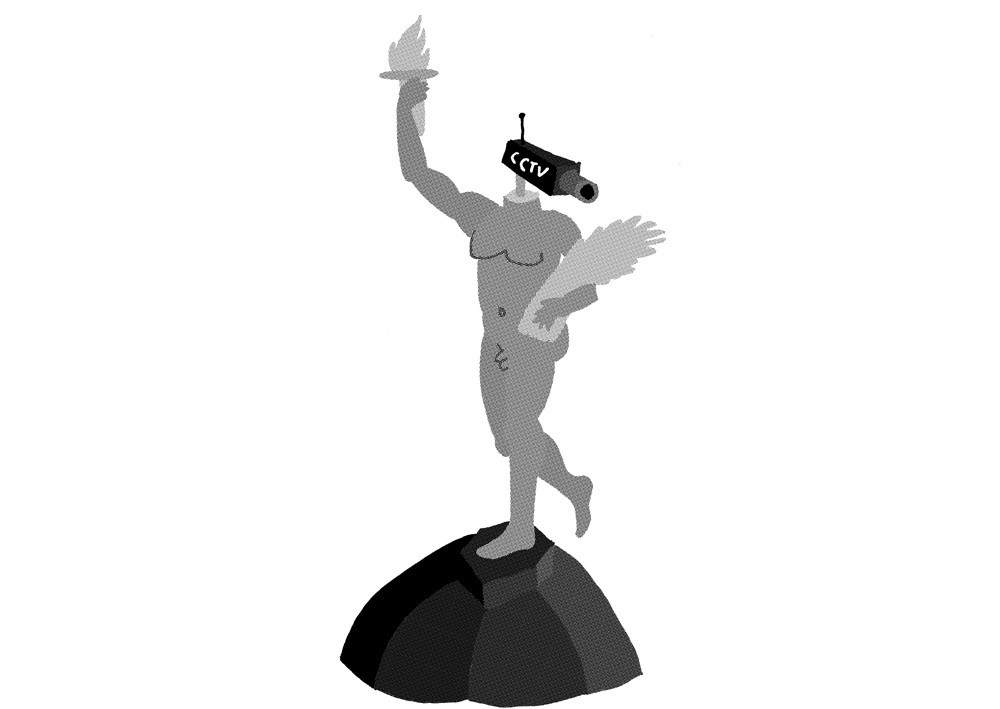Canada’s Patriot Act
Why we should be wary of increased surveillance
Bill C-51, or The Anti-Terrorism Act as it’s more commonly known, is the newly revealed piece of legislation that the Prime Minister’s office claims will tighten Canada’s protections against acts of terrorism and improve communication amongst various departments and agencies.
The bill grants sweeping new powers to security agencies such as the Canadian Security Intelligence Service (CSIS) that not only allow for increased surveillance of online activities, but also gives CSIS the power to “disrupt” potential terrorist plots. It is unclear what exactly that entails or allows for, as the language is often vague and left to interpretation.

A particularly worrisome section of the bill pertains to the issuance of warrants, and allows CSIS to “enter any place,” “open or obtain access to any thing,” “examine, take extracts from or make copies of ... the information, record, document or thing,” or “do any other thing that is reasonably necessary to take those measures.”
The bill may prove to be a turning point in CSIS’s operational mandate from primarily an intelligence-gathering agency to one focused on counterterrorism and subterfuge, similar to what occurred within the CIA in the years following 9/11.
Though government officials are claiming the bill is a response to recent “terrorist” threats against Canada and was designed to ensure the safety of Canadians, there are legitimate questions about the government’s real intentions. Who will be targeted and for what reasons? How will people’s rights be affected? Do we really need increased security? Is the threat of terrorism really as imminent as the government claims?
It is also unclear what exactly “terrorism” is. The bill contains numerous definitions of the central terms used in the text, however the term “terrorism” is never properly defined.
In western discourse terrorism has become a catch-all term for some violent acts by a loosely-defined enemy the state wishes to engage in an indefinite war. It has been most commonly used to describe Islamist extremism, but has also been applied to various liberation movements such as the Palestinian resistance, as well as environmentalists and Indigenous activists. The worry amongst critics is that innocent citizens will be the subject of unnecessary and invasive surveillance and potentially prosecution.
Canada’s mass surveillance projects, which occur in partnership with the United States, Britain, Australia and New Zealand - or the “Five Eyes” as they are often called - have become more public in the wake of whistleblower Edward Snowden’s leaks.
In the week leading up to Bill C-51’s announcement, online publication The Intercept reported on two separate surveillance programs, one called “BADASS,” a joint operation with Britain’s Government Communications Headquarters (GCHQ) that collects Smartphone analytics; and another called “LEVITATION,” a home-grown operation that monitors downloads from file-sharing sites. Regardinig the latter, journalist Glenn Greenwald commented that it is the first example of Canada taking the lead in its efforts to gather information, as Canada is usually known for its supporting role in the “Five Eyes” global surveillance network.
Canadians should be sceptical of any legislation designed to increase surveillance, because as has been proven by Edward Snowden and the NSA, the abuse of such powers is practically an inevitable outcome.
Greg Gallinger is a freelance photographer, vegan food enthusiast, a purveyor of half-witted commentary and a reluctant citizen of the global technocracy.
Published in Volume 69, Number 20 of The Uniter (February 11, 2015)






